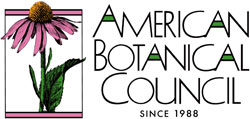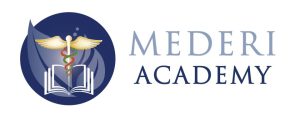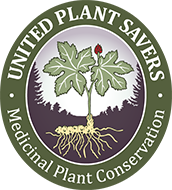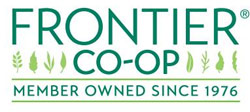Past Conference
Videos and audio from this conference are now available! For CE information, please visit the 2023 SW Recordings CE page.
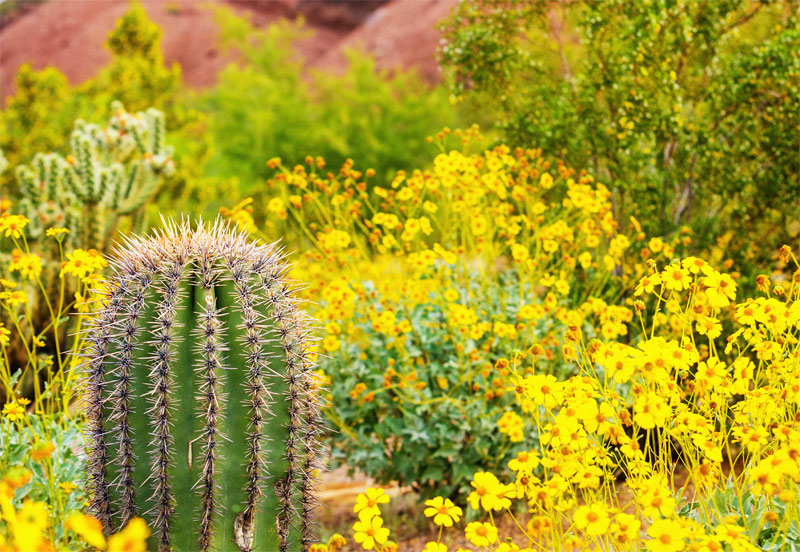
Online from March 24 – March 26, 2023
(Extended access to videos after online conference weekend)
This annual conference will take place online.
Table of Contents
- Registration
- Pre-Conference Intensive
- Conference Schedule
- Pre-recorded Videos
- Speakers and Topics
- Continuing Education
- Sponsors and Exhibitors
Highlights:
- 21 online lectures: clinical botanical medicine for chronic health conditions via video. See speaker and topic list.
- Pre-conference Intensive with Eric Yarnell, ND, RH (AHG) on Reclaiming Self: Herbs to Correct Autoimmunity
- Two panel discussions on Zoom with audience participation
- Continuing education available for ND, LAc and others
- NDs: Up to 35.5 general hours of which 13 can be pharmacy (or 10 pharmacy + 3 opioid credits for AZ ND) (OBNM, SUHS and CNDA)
- Acupuncturists: Up to 19 PDA (NCCAOM)
- Nurses: This nursing continuing professional development activity was approved by the American Holistic Nurses Association, an accredited approver by the American Nurses Credentialing Center’s Commission on Accreditation.
- Registration includes:
- Access to 21 videos for 6 months
- Digital lecture notes and PowerPoints in PDF format to own
- Full set of audio recordings to own
- Continuing education ($25 additional fee for CE)
Registration: Early bird $345 by March 3; $415 after that date. Includes all video lectures except Friday intensive and CE fee.
Cancellations: By March 9, registration fees will be refunded minus $50 processing per registrant. No refunds can be given after 3/9/23. Refund requests should be emailed to the Registration Office.
Scholarships: In recognition of the need for diversity in the fields of clinical herbalism and naturopathic medicine, the conference is offering a limited number of full scholarships to persons of color (Black, Indigenous, Hispanic/Latino, and Asian-American) who are not yet practitioners and would like to further their education in the clinical uses of botanical medicine. Details
Other Full and Partial Scholarships are modeled on the work-study program. There are a limited number of scholarships based on financial need, and secondarily on participation in publicity initiatives for the conference. Applications close March 3. Details
Livestream Events on Zoom, March 24 – 26
All live events are recorded for later on-demand viewing for those who can’t attend online at the scheduled time.

Note: The information provided in this conference is a research resource for health professionals and is not intended to replace diagnosis and treatment by a qualified health care practitioner.
Pre-Conference Intensive with Eric Yarnell, ND, RH (AHG)
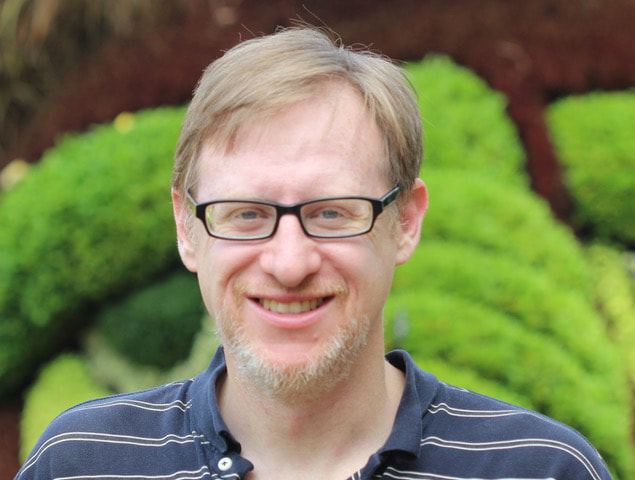
Title: Reclaiming Self: Herbs to Correct Autoimmunity
Date: Friday, 3/24/23
Time: 1:00 – 5:15 PM Arizona and Pacific Time on Zoom
Cost: $95
Open only to registered conference participants.
Continuing Education: 4 hours credit
- NDs: Approved for 2 pharmacy hours + 2 general hours (CNDA and SUHS and OBNM)
- Acupuncturists: 4 PDA (NCCAOM)
- NEW! Intensive is now approved for AOM-BIO PDA
- Nurses: 3 Contact Hours (AHNA)
In this intensive, Eric Yarnell, ND, RH (AHG) discusses the role of herbs in helping counteract and reverse autoimmunity, the underlying cause behind many chronic and acute conditions. The focus is on the immunomodulating herbs, distinguishing them from the immunostimulant herbs, and clarifying the profound and potent (though gentle and slow) effects immunomodulators can have. The differences between these herbs and various immunosuppressive and biologic drugs for autoimmune diseases are considered, along with the problems with these drugs, including herb-drug interactions (positive and negative). Case examples from patients with complex autoimmune diseases are used to illustrate the practical implementation of the strategies presented.
Special presentations for acupuncturists (all are welcome)
8:30 AM – 10:00 AM, Arizona and Pacific Time
History and Clinical Uses of Eupatorium perfoliatum and Asclepias tuberosa
Paul Bergner, Medical Herbalist
In the 1790s, some younger doctors of the Regular School of medicine (bloodletters) began advocating for the use of these two herbs in febrile illness and pneumonia as alternatives specifically for bloodletting. Not the Thomsonians, the regular allopaths. Subsequently across the 1800s, all schools of medicine used them as primary medicines. Both were official in the US Pharmacopoeia throughout the 1800s. The British herbalists used them, and one Brit who is stated to have treated 10,000 patients using these herbs with others during the 1918 flu pandemic said he did not lose a patient. These two were also among the top herbs to treat influenza among the Eclectics in the US during the 1918 pandemic. Bring it up to today, and these two herbs are extremely valuable in COVID, and I have seen or have case reports on one or the other being a “game-changer” when introduced to an individual with long lingering symptoms. This would review the science on each herb, the history of use in medicine, and practical means of applying, with dose and form, and case studies from my own experience. This is appealing to me for how it intertwines medical history with practical therapeutics.
10:30 AM – 12:00 PM, Arizona and Pacific Time
Three Cytotoxic Herbs – A Materia Medica Review of Artemisia absinthium, Thuja occidentalis and Taxus brevifolia in Clinical Practice
Chanchal Cabrera, FNIMH, RH (AHG)
Note: These three herbs should only be used by medical professionals with knowledge of their use and toxicity. These botanicals have both value and utility when combined with conventional chemotherapy and sometimes even up-regulating it, for example, artemisinin and conventional chemo for brain cancer. We will discuss strategic thinking with herbs in cancer care and prioritizing treatment. Included in the discussion:
- pharmacology and how the herbs work, active pathways and clinical uses.
- pharmacokinetics and how the herbs get absorbed, distributed, and eliminated
- herb-drug interactions, safety, dosing, contra-indications

9:00 AM – 10:30 AM, Arizona and Pacific Time
Case Studies in the Management of Traumatic Brain Injury
Kenneth Proefrock, NMD
Five cases illustrate the management of neurological injury resulting from a variety of events. We investigate the initial cause of the brain injury, what pharmaceuticals and other treatments have been given so far, and how botanicals and nutrients can have a profound therapeutic effect on these conditions, often leading the reduction and/or elimination of the pharmaceuticals prescribed. Cases include:
- 4-year-old female: Cerebral palsy with dystonia post-birth trauma
- 3-year-old male: Near-fatal drowning and persistent seizure disorders
- 22-year-old male: Concussion/post-concussion syndrome
- 32-year-old female: Chemical/Mold toxicity-induced neuro-inflammation
- 68-year-old female: Cerebro-vascular accident and neurological-inflammation
11:00 AM – 12:30 PM, Arizona and Pacific Time
Gender-affirming Care for Adolescents: Botanical Allies for Transition
Brianna Piché, ND, RH (AHG)
Providing gender-affirming care for transgender teens and young adults is important. Drawing on the speaker’s own experience with this patient population, this presentation includes a discussion of pharmaceuticals and conventional care models for transmasculine and transfeminine individuals, including puberty blockers and HRT. We discuss botanical allies for hormone modulation and support during transition, including mental health support.
1:30 PM – 3:00 PM, Arizona and Pacific Time
Managing Impacts of Opioid Use Using Herbs and Nutrition
Jen Stovall, BSN, RN
Opioids are an important and necessary medicine for many of our clients. Unfortunately, long-term opioid use can impact both physical and mental health. In this presentation, we outline patterns of imbalance associated with opioid use and preventative strategies for support. Because opioids impact the body systems in predictable ways, resulting in similar symptom patterns, we look at both herbal and nutritional protocols that address the long-term impact of opioid use. Material presented is informed by the reality that not everyone is able, willing, or ready to quit using opioids and the belief that they still deserve support. We also consider commonly held myths about opioid users, both prescription and recreational, and best practices that lead to empowerment rather than stigmatization.
3:30 PM – 5:00 PM, Arizona and Pacific Time
Panel Discussion: Botanical and other Natural Medicine for Functional GI Disorders
Panelists: Brianna Piché, ND, RH (AHG), Katie Stage, ND, RH (AHG), FABNG and Jillian Stansbury, ND
These are some of the most common conditions encountered in medical practice, and their successful management can often provide a key to finding a path toward better health for many patients. Three experienced clinicians discuss three issues: GERD, IBS and constipation. A brief description of the condition is followed by practical suggestions for management and clinical examples of botanicals and nutrients. Also included are the common pharmaceuticals prescribed, and their side effects and possible advantages for healing. The discussion will then be opened up to questions from the online audience.

9:00 AM – 10:30 AM, Arizona and Pacific Time
Detoxifying the Body: The Clinical Use of Alteratives, Depuratives and Antidyscratics
David Winston, RH (AHG)
The concept of an alterative was a very prominent part of western medicine up until the early 20th century. Even though alteratives were dropped from western medicine, their use still persists as an important part of herbal medicine. These herbs enhance normal eliminatory functioning via the major eliminatory organs, thus allowing the body to function more effectively even on a cellular level. Come join us as we learn about the most important alterative herbs, the differences between alteratives and antidyscratics, and how they can be used to promote healthy elimination of metabolic wastes to maintain health. Their use in the treatment of chronic degenerative diseases such as cancer, arthritis, skin problems and autoimmune conditions is included.
11:00 AM – 12:30 PM, Arizona and Pacific Time
Panel Discussion: Botanical and other Therapies for Long COVID
Panelists: Dee Atkinson, FNIMH, Paul Bergner, Medical Herbalist, Kenneth Proefrock, NMD and David Winston, RH (AHG)
The panel begins with a presentation by Dee Atkinson, an herbalist and fellow of the National Institute of Medical Herbalists, and her experiences treating long COVID in her clinic in Edinburgh. The interesting similarities between CFS, Epstein-Barr and long COVID are mentioned, and the discussion is based on these observations. Paul Bergner describes the foundational dietary and nutritional factors which can underlie the many possible symptoms of long covid and other “long” chronic diseases. He evaluates nutrient and lifestyle deficiencies in each patient which are associated with common, very specific symptoms of long COVID and other chronic conditions. He explains how herbal therapeutics alone are unlikely to produce a strong recovery if these dietary and lifestyle imbalances are still present. Kenneth Proefrock addresses the medications given for acute COVID and their long-term effects, and whether any of these drugs may be useful in the treatment of long COVID. And finally, David Winston described the syndrome of “medium COVID” in which patients develop serious cardiovascular and other symptoms about 6 months after recovery. The panel will then be opened to questions from the online audience.
1:30 PM – 3:00 PM, Arizona and Pacific Time
A New Perspective on Mood Disorders: The Role of Oxidative Stress in Common Anxiety and Depression States
Jillian Stansbury, ND
This session reviews the growing research on the role that oxidative stress plays in mood disorders, including common anxiety and depressive state. Many herbs popular in the treatment of mental health issues may not only affect neurotransmitter profiles, they may also protect against oxidative stress in the central nervous system and contribute to the therapeutic effects. Clinicians may approach these exceedingly common disorders by addressing underlying inflammatory burdens in the body through diet, digestive and liver support, and possible nutritional supplementation, while ensuring that powerful antioxidant herbs are included in all herbal formulas for best therapeutic effects.
3:30 PM – 5:00 PM, Arizona and Pacific Time
“I’m Not Sick…It’s Allergies!” Natural Treatments for Allergic Conditions
Katie Stage, ND, RH (AHG), FABNG
Allergies are common, affecting at least 7% of people in North America. Symptoms can be confusing in this post-pandemic time and can be frustrating at any time. This session discusses natural and herbal treatments for allergies and related conditions such as sinusitis and allergic conjunctivitis. We also review signs of more complex conditions such as mast cell disorders. Pharmaceutical treatments are also reviewed.

Paul Bergner, Medical Herbalist
History and Clinical Uses of Eupatorium perfoliatum and Asclepias tuberosa
In the 1790s, some younger doctors of the Regular School of medicine (bloodletters) began advocating for the use of these two herbs in febrile illness and pneumonia as alternatives specifically for bloodletting. Not the Thomsonians, the regular allopaths. Subsequently across the 1800, all schools of medicine used them as primary medicines. Both were official in the US Pharamcopoeia throughout the 1800s. The British herbalists used them, and one Brit who is stated to have treated 10,000 patients using these herbs with others during the 1918 flu pandemic said he did not lose a patient. These two were also among the top herbs to treat influenza among the Eclectics in the US during the 1918 pandemic. Bring it up to today, and these two herbs are extremely valuable in COVID, and I have seen or have case reports on one or the other being a “game-changer” when introduced to an indivdual with long lingering symptoms. This would review the science on each herb, the history of use in medicine, and practical means of applying, with dose and form, and case studies from my own experience. This is appealing to me for how it intertwines medical history with practical therapeutics.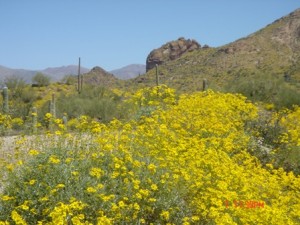
Paul Bergner, Medical Herbalist
Herbal Treasures from the National Formulary (NF) of 1906
The NF was the official listing of formulas for allopathic physicians and pharmacists at the turn of the 20th century. The NF of 1906 contains the most herbal formulas of all the various editions of the NF, and is available free online. The formulary demonstrates not only clinical pearl-type specific formulas for various systems and conditions, but also demonstrates methods of formulation at a high level of professional practice. Most herbalists and doctors today do not realize that the allopaths at the turn of the 20th century had some of the most extensive, complex, and sophisticated herbal formulas at hand.
Chanchal Cabrera, FNIMH, RH (AHG)
Three Cytotoxic Herbs – A Materia Medica Review of Artemisia absinthium, Thuja occidentalis and Taxus brevifolia in Clinical Practice
Note: These three herbs should only be used by medical professionals with knowledge of their use and toxicity. These botanicals have both value and utility when combined with conventional chemotherapy and sometimes even up-regulating it, for example artemisinin and conventional chemo for brain cancer. We will discuss strategic thinking with herbs in cancer care and prioritizing treatment. Included in the discussion:
- Pharmacology and how the herbs work, active pathways and clinical uses
- Pharmacokinetics and how the herbs get absorbed, distributed and eliminated
- Herb drug interactions, safety, dosing, contra-indications
Deborah Frances, ND
Suppression vs Healing: Appropriate Applications of Herbal and Nutritional Therapies for Common Skin Conditions
Skin conditions are often a manifestation of the body’s attempt to correct an internal imbalance. For this reason, it is vital not to treat the skin to suppress the body’s attempt at healing. Some skin conditions and some patients are more easily suppressed than others. Being able to evaluate which types of eruptions and patients are more prone to suppression can guide us to the most healing applications of herbal therapies. As with anything else, just treating the skin is not enough. We must look at the whole person.
Calendula, Ulmus, Scrophularia, Nicotiana, Rosa, Symphytum, Larrea, dragon’s blood and various alteratives are among the many herbs discussed to treat common skin afflictions, including actinic keratosis, ringworm, eczema, psoriasis, outbreaks of herpes simplex and zoster, wounds, burns and decubiti (bedsores). Cases will be included.
Lillea Hartwell, ND, RH (AHG)
A Modern Yerberia in the Desert Southwest
This lecture compares and contrast research completed by the speaker when growing herbs frequently used in Mexican Traditional Medicine (MTM). Includes information on how controlled environment agriculture systems could be the future of growing herbs and how to build those systems: aquaponics, nutrient film techniques and aeroponic systems. We describe these techniques, how they can easily be built, how they can benefit those of us growing during difficult external temperatures (like 38C summer in Phoenix), and the different substrates that seem to work best. Growing techniques and medicinal uses of specific herbs in the basil and mint family are included.
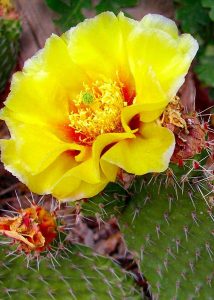 Jack Lambert, PhD, MD
Jack Lambert, PhD, MD
Long COVID: Symptoms, Etiology and Management Plans from the EU
From his perspective as a researcher in chronic conditions such as HIV/AIDS and chronic Lyme disease, Jack Lambert, MD, PhD begins the presentation with his observations and research into the development of long COVID symptoms from the start of the pandemic in March of 2020, and the similarities in symptoms to other long-term conditions such as Lyme disease and chronic fatigue syndrome. Based on his experience in those conditions, he has developed a management plan which includes modifications of diet, lifestyle, and,in some cases, low-dose pharmaceuticals. He also regularly refers patients interested in alternatives to a local herbal clinic. Botanicals for this condition are covered in more detail in the conference’s panel discussion on long COVID.
Brianna Piché, ND, RH, (AHG)
Pediatric ADHD: Botanical Nootropics and Mood Support in Childhood and Adolescence
We describe the signs, symptoms and diagnosis of ADHD in children and adolescents, review conventional and pharmaceutical treatment recommendations, and discuss botanical nootropics, adaptogens and nervines to support attention, concentration and co-occurring mental health conditions.
Kenneth Proefrock, NMD
Improving Neuroplasticity and Mental Adaptability with Botanical Medicine and Physical Activity
Mental health can be improved throughout life by adopting a botanical medicine foundation with specific physical exercises, including breathwork. Humans are the most adaptable creatures on planet Earth and much of modern life is unfavorable to a healthy lifestyle and a well-working mind over the long-term. Our bodies and our minds are designed to respond to an ever-changing world that swings between the extremes of safeness and un-safeness, and the resulting constant calibration of the neuronal architecture of one’s self to the unfolding physical sensations of life. This is how we derive a sense of meaning from those experiences.
The essence of the biochemical phenomenon we regard as neuroplasticity is an ongoing and dynamic process of a constant assembling and disassembling of microtubular neural structures, which become consolidated through sensory input into our neural architecture. The other neuronal connections are culled and their raw materials used for the next growth spurt. Central to this idea is how effectively our neurological system is able to shift its architectural components to better accommodate the experiences of life. We are selective in how we interpret our reality; our mind and our senses conspire to make us decide what is real and what is unreal, what to remember and what to forget, they co-ordinate our feelings of pleasant or unpleasant, beauty or ugliness, appealing or not appealing. Botanical medicine provides a means to re-calibrate one’s experiences with agents like Kava (Piper methysticum), Valeriana spp, Leonurus cardiaca, and Leonotis leonurus, which have a defined effect on most people, but it is not uniform across all individuals. As we discuss these subtleties, we have the opportunity to understand ourselves, our neighbors and our world more deeply.
Kenneth Proefrock, NMD
Hear Ye! Hear Ye! A Natural History of the Ear and Its Pathology: From Otitis to Meniere’s and Hearing Loss
A discussion about the interesting evolutionary and developmental progression of the ear and other hearing mechanisms. We discuss botanical medicine and nutritional interventions for numerous pathological ear conditions, from acute conditions like otitis media and externa in children to chronic tinnitus, hearing loss and vertigo. Local, topical interventions and systemic, treatments based on a better understanding of the anatomy and physiology of the organ are included along with a description of the side effects and usages of pharmaceuticals in these conditions.
Jillian Stansbury, ND
Gastrodia elata: Traditional Chinese Medicine for Managing Migraines, Stroke and More
Gastrodiae Rhizoma, also called chì jiàn in Traditional Chinese Medicine, has been used for centuries to manage effective inhibition of diverse conditions including convulsion, oxidative stress, mental disorders, amnesia, cardio-cerebral-vascular diseases, and inflammation, among others. It has been widely studied and several mechanisms of activity were found, including the modulation and regulation of monoamine oxidase activity, monoamine concentration and turnover, antioxidatant activity, GABAergic system induction, BDNF induction, neuroprotection and anti-inflammatory activity [ref: PMID: 24716103]. This presentation describes the mechanisms of action and the therapeutic uses of Gastrodia, including migraine and stroke.
Jen Stovall, BSN, RN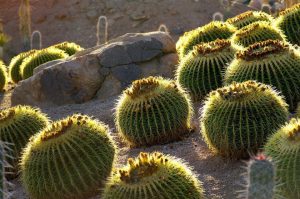
Soothing the Hungry Ghost: Supporting our Clients When they are Ready to Quit Using Opioids
Due to widespread opioid use in our culture, herbalists are sure to encounter clients seeking our support to help them quit using. Unfortunately, our cultural narrative around drug use does not allow for a tolerance of, much less identification with, addiction and so herbalists who want to help find there is a lack of practical information about how to provide support. In this class, Jen shares protocols she’s used in her practice to support clients who want to quit using opioids. Using principles of harm reduction as a framework to provide support, we examine conventional concepts of addiction from various angles as we explore alternative ways to support those experiencing addiction.
Eric Yarnell, ND, RH (AHG)
Herbal Dependence on the Gut Flora
Animals have evolved with gut floras, and over many millions of years, these intestinal microbes have come to be crucial in the metabolism and activity of a wide range of herbal constituents. Numerous well-documented examples of this necessary interplay are presented, including Panax ginseng, Arctium lappa, Arctostaphylos spp, Linum usitatissimum, Digitalis spp, and many others. The detrimental impacts of antibiotics and some other drugs on these critical metabolic processes along with practical implications of these issues.
Eric Yarnell, ND, RH (AHG)
Update on Herbs for Men’s Health
A clinical review of the most effective herbal strategies for preventing and treating common conditions in men’s health, including benign prostatic hyperplasia, chronic pelvic pain/chronic prostatitis, low-grade/localized prostate cancer, varicocele, Peyronie’s disease, and erectile dysfunction. Recommendations on which herbs to use for which people and at what doses are given, as well as how they interact (mostly beneficially) with common drugs for these conditions. Case examples from Dr. Yarnell’s years in practice are included.
Speakers and Topics
(Subject to minor changes)
Dee Atkinson, FNIMH
Dee Atkinson is a Fellow of the National Institute of Medical Herbalists (FNIMH) and the senior herbal practitioner at Napiers the Herbalists in Edinburgh, Scotland. She runs a general medicine clinic with a special interest in women’s health, managing hormonal health and aging. More recently, Dee set up the Napiers Long Covid Clinic to facilitate an integrated approach between doctors, herbalists and nutritionists to address this new disease. More about Dee Atkinson.
Presentations:
1. Panel Discussion: Botanical and other Therapies for Long COVID
Paul Bergner, Medical Herbalist
The Director of the North American Institute of Medical Herbalism in Portland, Oregon, Paul Bergner offers seminar training in clinical skills, medical herbalism, nutrition, and nature cure. He supervised a teaching clinic in Boulder, Colorado from 1996 until 2012, has edited the Medical Herbalism journal since 1989, and is the author of seven books on herbal medicine. More about Paul Bergner.
Presentations:
1. History and Clinical Uses of Eupatorium perfoliatum and Asclepias tuberosa
2. Treasures from the National Formulary of 1906
3. Panel Discussion: Botanical and other Therapies for Long COVID
Chanchal Cabrera, FNIMH, RH (AHG)
The former faculty chair of botanical medicine at Boucher Institute of Naturopathic Medicine, Chanchal is a Fellow of the National Institute of Medical Herbalists (UK) and an herbal practitioner specializing in helping patients manage cancer. On her organic farm in British Columbia, she runs therapy workshops for people with disabilities. More about Chanchal Cabrera.
Presentation:
1. Three Cytotoxic Herbs – A Materia Medica Review of Artemisia absinthium, Thuja occidentalis and Taxus brevifolia in Clinical Practice
Deborah Frances, ND
Deborah Frances began her career in health care as a registered nurse, where she gathered extensive experience in a wide range of fields, including psychiatry, women’s health, family practice and intensive and coronary care. In 1993 she graduated from the National University of Natural Medicine in Portland, Oregon. In her healing, she utilizes natural therapies such as homeopathy, herbal medicine, hydrotherapy, physical medicine, nutrition and hands-on energy therapies to help resolve blocked mental, emotional or spiritual patterns. More about Deborah Frances.
Presentation:
1. Suppression vs. Healing: Appropriate Applications of Herbal and Nutritional Therapies for Common Skin Conditions
Lillea Hartwell, ND, RH (AHG)
Lillea Hartwell is a naturopathic physician and registered herbalist who practices in southwestern Arizona at the Saguaro Blossom Medical Center, where she specializes in autoimmune conditions using the full scope of naturopathic modalities including botanical medicine, clinical nutrition, mind-body medicine, intramuscular nutrients, intravenous nutrients and minor surgery. She holds a BS in plant sciences with an emphasis in medical ethnobotany and a minor in environmental sciences. She teaches in the botanical medicine department of Sonoran University (formerly Southwest College of Naturopathic Medicine). More about Lillea Hartwell.
Presentation:
1. A Modern Yerberia: Controlled-Environment Agriculture for Growing Herbs in the Desert Southwest
Jack Lambert, PhD, MD (from the EU)
Professor Lambert is an adjunct Full Clinical Professor and Consultant in Infectious Diseases and Genitourinary Medicine at Mater Misericordiae University Hospital, and Associate Professor at University College of Dublin School of Medicine. His current research on chronic diseases such as HIV and long Lyme have pointed the way to a treatment plan for long COVID, which he has been researching since the start of the pandemic in 2020. More about Jack Lambert.
Presentation:
1. Long COVID: Symptoms, Etiology and Management Plans from the EU
Brianna Piché, ND, RH (AHG)
Brianna Piché is a naturopathic physician and registered herbalist specializing in integrative pediatrics, postpartum care, and breastfeeding medicine. She has additional clinical interest in adolescent gender-affirming care, sexual and reproductive health, and in providing primary pediatric and peripartum care for families and children who identify as LGBTQ and non-binary. She serves as adjunct faculty at Bastyr University within the Departments of Botanical Medicine and Naturopathic Medicine and teaches coursework in pediatrics and clinical herbalism. More about Brianna Piché.
Presentations:
1. Gender-affirming Care for Adolescents: Botanical Allies for Transition
2. Pediatric ADHD: Botanical Nootropics and Mood Support in Childhood and Adolescence
3. Panel Discussion: Botanical and other Natural Medicine for Functional GI Disorders
Kenneth Proefrock, NMD
A naturopathic physician practicing in Sun City, Arizona, Kenneth Proefrock specializes in difficult-to-treat conditions in his clinic, Total Wellness. He is the Vice President of the North American Board of Naturopathic Examiners and chair of the biochemistry portion of the naturopathic physician’s licensing exam. His lectures combine a detailed understanding of biochemistry and physiology with a passion for plant medicine. More about Kenneth Proefrock.
Presentations:
1. Improving Neuroplasticity and Mental Adaptability with Botanical Medicine and Physical Activity
2. Hear Ye! Hear Ye! A Natural History of the Ear and Its Pathology: From Otitis to Meniere’s and Hearing Loss
3. Case Studies in the Naturopathic Management of Traumatic Brain Injury
4. Panel: Botanical and other Therapies for Long COVID
Katie Stage, ND, RH (AHG), FABNG
Katie Stage, ND, RH (AHG), FABNG is a naturopathic physician and registered herbalist of the American Herbalists Guild. Her lectures are full of clinical information based on experience in her practice in family medicine at the SUHS Medical Center in Tempe, AZ, where she practices family medicine focusing on optimizing women’s/men’s health, gastrointestinal diseases, and mental health. Her lectures combine clinical information with a deep respect for indigenous healing and the ability to heal oneself through connection with nature and simple lifestyle practices. She is also a member of the Ric Scalzo Botanical Research Institute. More about Katie Stage.
Presentations:
1. “I’m not sick….it’s allergies!” Natural Treatments for Allergic Conditions
2. Panel Discussion: Botanical and other Natural Medicine for Functional GI Disorders
Jillian Stansbury, ND
Jillian Stansbury is a naturopathic physician who has been practicing in SW Washington State for over 30 years, specializing in women’s health, mental health, and chronic disease. She holds undergraduate degrees in Medical Illustration and Medical Assisting and graduated with honors in both programs. She was the chair of the botanical medicine department at the National University of Natural Medicine for over 20 years. Jill has recently published five herbal formularies for health professionals, comprehensive, practical reference manuals for herbalists, physicians, nurses, and allied health professionals. More about Jillian Stansbury.
Presentations:
1. A New Perspective on Mood Disorders: The Role of Oxidative Stress in Common Anxiety and Depressive States
2. Gastrodia elata: Traditional Chinese Medicine for Managing Migraines, Stroke and More
3. Panel Discussion: Botanical and other Natural Medicine for Functional GI Disorders
Jen Stovall, BSN, RN
A community herbalist and health educator, Jen Stovall believes that herbalism is a potent tool for social justice. Her work as a teacher and practitioner is informed by Western Herbalism, Southern Folk Medicine, and harm reduction practices. She has a BSN-RN and is a NADA Ear Acupuncture Detox Specialist and Trainer. She provides education and outreach for the Trystereo Harm Reduction Collective, a grassroots Syringe Access Program in New Orleans. Her herb school in North Carolina, Terra Sylva School of Botanical Medicine, is focused on centering concepts of bioregional herbalism, embodiment practices, and liberatory frameworks in herbalism More about Jen Stovall.
Presentations:
1. Managing the Impacts of Opioid Use Using Herbs & Nutrition
2. Soothing the Hungry Ghost: Supporting our Clients When They are Ready to Quit Using Opioids
David Winston, RH (AHG)
David Winston is an Herbalist and Ethnobotanist with 54 years of training in Chinese, Western/Eclectic and Southeastern herbal traditions. He has been in clinical practice for 47 years and is an herbal consultant to physicians, herbalists and researchers throughout the USA, Europe and Canada. David is the founder/director of the Herbal Therapeutics Research Library and the dean of David Winston’s Center for Herbal Studies, a two-year training program in clinical herbal medicine. He is an internationally known lecturer and frequently teaches at medical schools, professional symposia and herb conferences. He is the president of Herbalist & Alchemist, Inc. a manufacturer that produces herbal products that blend the art and science of the world’s great herbal traditions.
More about David Winston.
Presentations:
1. Detoxifying the Body: The Clinical Use of Alteratives, Depuratives and Antidyscratics
2. Panel: Botanical and other Therapies for Long COVID
Eric Yarnell, ND, RH (AHG)
Eric Yarnell is an associate professor in the department of botanical medicine at Bastyr University and chief medical officer at Northwest Naturopathic Urology. He is the author and co-author of numerous articles and books for practitioners including Clinical Botanical Medicine and Natural Approach to Gastroenterology. More about Eric Yarnell.
Presentations:
1. Friday Pre-Conference Intensive: Reclaiming Self: Herbs to Correct Autoimmunity ($95 extra fee)
2. Herbal Dependence on the Gut Flora
3. Update on Herbs for Men’s Health
Panel Discussions Live on Zoom:
1. Botanical and other Therapies for Long COVID with Dee Atkinson, Paul Bergner, David Winston and Kenneth Proefrock
2. Botanical Therapies for Functional GI Issues with Katie Stage, Jill Stansbury and Brianna Piché
Continuing Education Information
- Please sign up for CE when you submit your registration form ($25 additional fee for all CE)
- We offer CE, CME and PDAs through these approvals
- Credits issued for full or partial attendance
- Totals below include attendance at pre-conference intensive
NATUROPATHIC PHYSICIANS: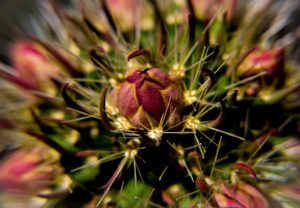
- Approved for up to 35.5 hours of which 13 can be pharmacy (OBNM)
- Approved for up to 35.5 hours of which 10 can be pharmacy + 3 opioid credits for Arizona NDs (SUHS)
- Approved for up to 35.5 hours of which 13 can be pharmacy.(CNDA)
- California NDs: Up to 19 live hours available, and up to 16.5 self-study videos available. CA NDs can earn a maximum of 15 self-study hours per renewal cycle. Please see your CE requirements from CNDA for further details.
- Full ND CE approval details
ACUPUNCTURISTS:
- Approved for up to 19 PDA (CE hours) for live online event only (NCCAOM)
- NEW! Intensive is now approved for AOM-BIO PDA
- NCCAOM approval details
NURSES:
- Approved by American Holistic Nurses Association (AHNA): Up to 28.5 contact hours
- Full nursing continuing education details
This nursing continuing professional development activity was approved by the American Holistic Nurses Association, an accredited approver by the American Nurses Credentialing Center’s Commission on Accreditation. Approved to award 28.5 contact hours.
Approval for contact hours through the American Holistic Nurses Association is based on an assessment of the educational merit of this program and does not constitute endorsement of the use of any specific modality in the care of clients.
A general certificate of attendance is available to any participant who requests it.
Questions about continuing education? Please read our CE FAQ and/or email us. We’re happy to help!
If you’re interested in sponsorship or exhibiting, please contact us. Many thanks to our sponsors this year who help make this conference and our scholarship program possible!
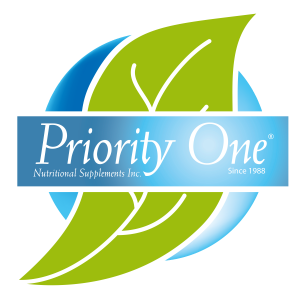
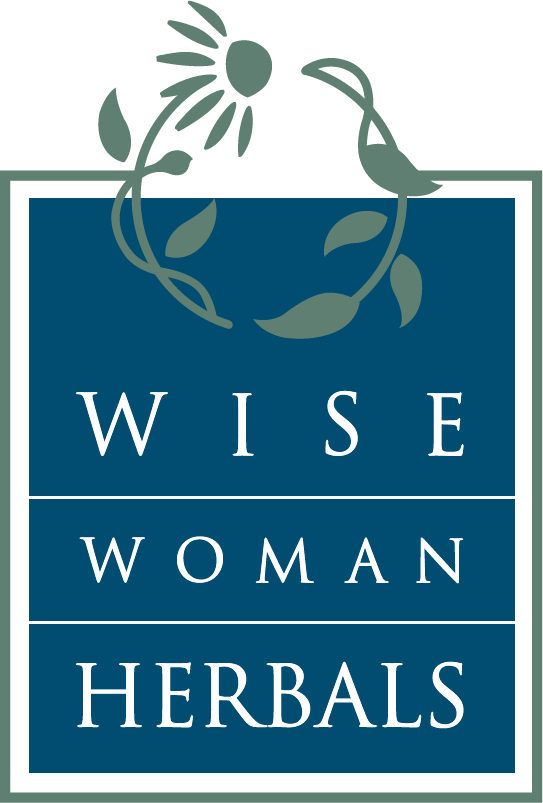
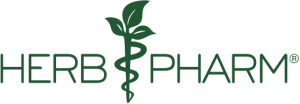

Questions? Email us. Herbal Educational Services Ashland, Oregon. Phone (541) 482-3016
Buy Tickets



